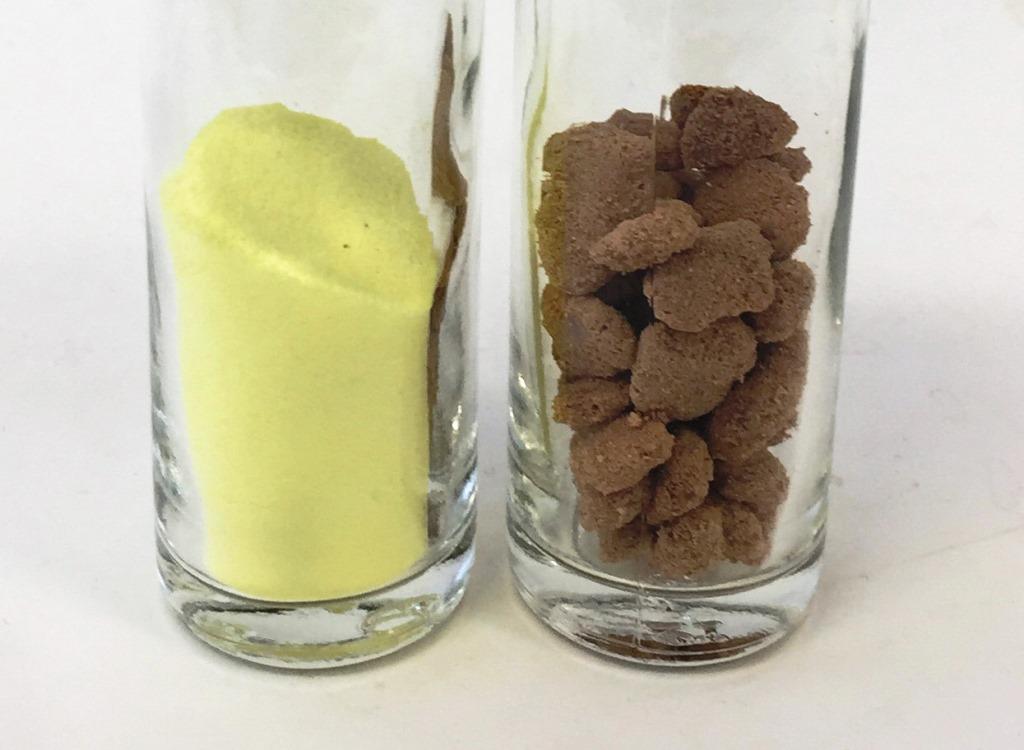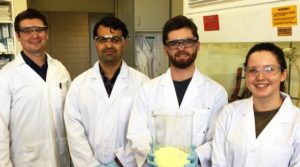

Work at Flinders to test and commercialise a new method to remove mercury pollution from land and water will progress this year with an $80,000 Australian Government environmental science grant.
The funding – the first time Flinders University has received a National Environmental Science Programme (NESP) grant – will enable field testing of the renewable polymer at mercury-contaminated soil, air and water at old mining sites and agricultural regions in Queensland.
The Minamata Convention which is up for ratification in Australia this year, could lead to stricter regulations of mercury and mercury pollution, says project leader Dr Justin Chalker.
“Mercury pollution threatens the health of millions of people around the world,” says Australian Research Council Discovery Early Career Research Award fellow Dr Justin Chalker.
“Excess mercury from goldmining tailings, for example, is typically dumped directly into waterways used for drinking and irrigation,” he says.
“Cost-effective and operationally simple technologies are therefore required to address this pollution crisis.
“Our team uses renewable plant oils and elemental sulfur to make the mercury-binding polymers.
“We are currently exploring new ways to improve the ability to capture mercury.”
Dr Chalker discovery two years ago has led to further investigations into refining the use of inexpensive byproducts from industrial processing – sulfur from the petroleum industry and plant oils such as limonene from the citrus drink industry – to be reused as an easy-to-use method of addressing this widespread pollution problem.
Dr Chalker and Chalker Lab researchers Max Worthington, Renata Kucera and Salah Alboaiji are working on the ‘MercuSorb’ polymer trials.
The project, titled ‘Sustainable polymer technologies for controlling mercury pollution’, will test the trial polymers on field samples and also conduct the field tests, including in sugarcane regions were mercury-based fungicides are still used.
Leading international journal, Green Chemistry, recently named Dr Chalker as an inaugural Emerging Investigator. Read a recent paper here.
The Green Chemistry advisory board described him as “an up-and-coming researcher making a significant contribution” to the field of sustainable chemistry.
Multiple patent applications have been lodged to protect the polymer’s commercialisation in the next year or two.
The Australian Government National Environmental Science Programme connects scientists, policymakers and communities to deliver research that will provide practical solutions. The program focuses on collaborative, practical and applied research that informs on-ground action.
Flinders Lecturer in Synthetic Chemistry Dr Justin Chalker will give a free public Flinders Investigators lecture on Laying Waste to Mercury Pollution at Flinders 182 Victoria Square, Adelaide on Wednesday 17 May. Register here.

